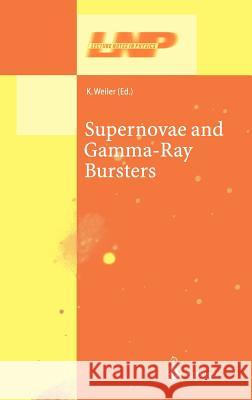Supernovae and Gamma-Ray Bursters » książka
Supernovae and Gamma-Ray Bursters
ISBN-13: 9783540440536 / Angielski / Twarda / 2003 / 472 str.
Since the dawn of mankind, observers of the sky have wondered at the sudden appearance of new stars on the seemingly unchanging heavens and, for at least 2000 years, have recorded these phenomena in their annals and archives. Even in more modern times, since the discovery of SN1885A in S Andromeda which ?gured in the important "island universe" discussions of the 1920's, the puzzle of supernovae (SNe) has played an important role in astrophysics. Only with the seminal work of Fritz Zwicky and Walter Baade in the 1930's did we begin to understand the di?erences between novae and SNe and the importance of SNe as the fonts of energy for the interstellar medium and as drivers of chemical evolution in galaxies. As recently as the 1940's and 1950's the early days of radio astronomy were heavily in?uenced by the familiar names of Cassiopeia A and Taurus A, two young supernova remnants, and two Nobel prizes have been awarded for discovery and study of a related phenomenon, pulsars. In spite of the great age of the study of SNe, since at least the Chinese records of SN185and probably earlier, the eld is, in fact, very young having only attracted a large devoted following since the spectacular Type II SN1987A in the Large Magellanic Cloud, the ?rst naked-eye SN in more than 400 years.











